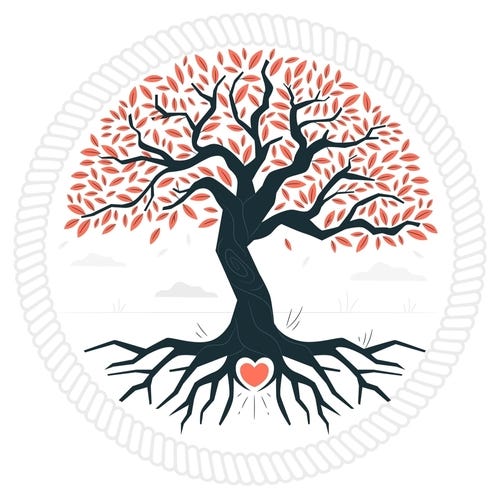We Must Heal the World, One Buddha is Not Enough
We have a collective responsibility to the planet and to the people of the world.
In my morning meditation practice, Tamara Levitt quoted Thich Nhat Hanh, saying that one Buddha is not enough. We must awaken together for the sake of our planet and one another. It deeply touched me, so I am presenting it to everyone so we can think about it together.
Thich Nhat Hanh, a renowned Vietnamese Buddhist monk, teacher, author, and peace activist, once stated, "One Buddha is not enough." This profound quote encapsulates a central theme in his teachings: the collective responsibility of individuals to cultivate mindfulness, compassion, and understanding to transform the world.
At its core, the statement suggests that the presence and teachings of a single enlightened being, such as Buddha, while immensely powerful, are insufficient to address the complexities and widespread suffering of the modern world. Thich Nhat Hanh emphasizes the importance of each person awakening to their potential for enlightenment and embodying the qualities of a Buddha in their daily lives. In this sense, the term "Buddha" is not limited to a historical figure but is expanded to include anyone who strives for enlightenment and practices mindfulness and compassion.
Thich Nhat Hanh's vision of "one Buddha is not enough" extends to the idea of a "Buddha Sangha," a community of individuals practicing mindfulness together. He believes a collective effort can significantly impact more than isolated individuals. By forming a community that supports and nurtures each other's practice, the teachings of the Buddha can be more effectively realized and spread. This community is a source of strength and inspiration, fostering a shared commitment to peace, understanding, and compassion.
In today’s interconnected world, our challenges are multifaceted and global. Environmental degradation, social injustice, and personal alienation require more than individual solutions; they demand collective action and a shift in consciousness. Thich Nhat Hanh’s call for more than one Buddha is a global awakening where many individuals, united in their mindfulness and compassion, work together to bring about positive change. It is an invitation for everyone to take responsibility for their transformation and, by extension, the transformation of society.
Thich Nhat Hanh also underscores the importance of mindful living as a means of cultivating the qualities of a Buddha. Mindfulness, the practice of being fully present and aware in each moment, allows individuals to understand themselves and their surroundings better. This awareness leads to greater compassion and a desire to ease the suffering of others. When practiced collectively, mindfulness can create a ripple effect, promoting peace and harmony on a larger scale.
Moreover, "one Buddha is not enough" challenges the notion of spiritual hierarchy and exclusivity. It democratizes the path to enlightenment, suggesting it is accessible to all, not just a few enlightened masters. This inclusivity is empowering, as it encourages everyone, regardless of their spiritual background or experience, to engage in spiritual practice and contribute to the collective well-being. It fosters a sense of shared purpose and interconnectedness, breaking down barriers and fostering a more compassionate and inclusive society.
Thich Nhat Hanh's quote, "One Buddha is not enough," is a powerful reminder of our collective potential and responsibility. It calls for a global community of mindful practitioners who, through their combined efforts, can address the urgent issues of our time and create a more compassionate and just world. By embracing the qualities of a Buddha and working together, we can transform ourselves and society, making the teachings of the Buddha a living reality in the modern world.
In Hebrew, the same idea is known as Tukkun Olam in Judaism, which means to repair the world as the "Tree of Life" represents.
Let's join together to fix the world.






"We have a collective responsibility to the planet and to the people of the world."
I keep hoping we can convert these fine lofty sentiments I see all over Substack in to tangible real world action which attempts to fulfill some of that collective responsibility.
Let us come down out of the theory clouds, plant our feet on the ground, and do something big, tangible, and specific. Not words and ideas, action. And then, once we have a system in place which does this for us automatically every month, back in to the clouds we may go.
Something like this:
https://writers-as-heroes.org/